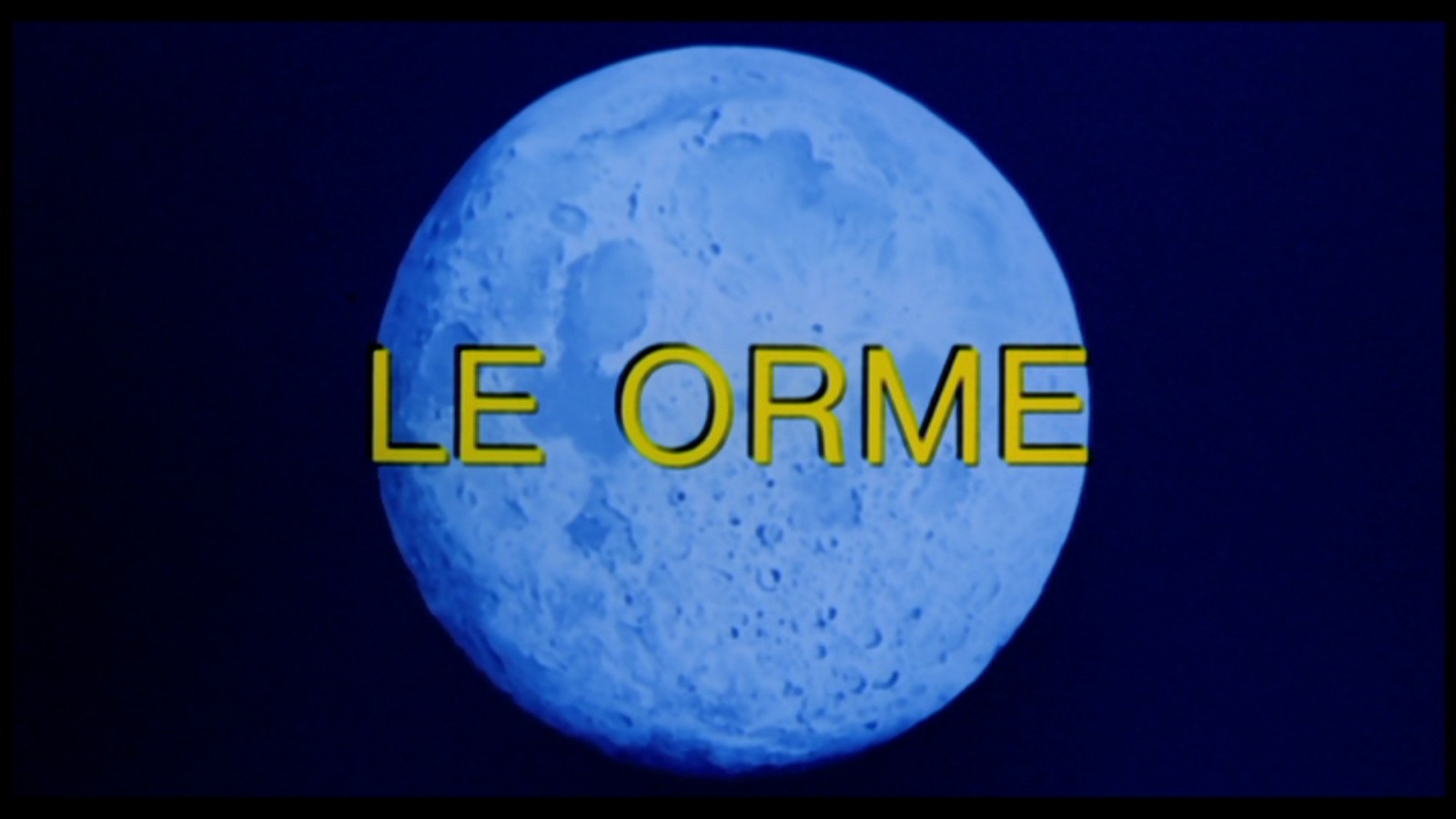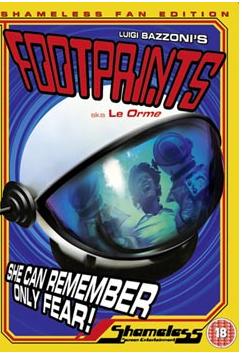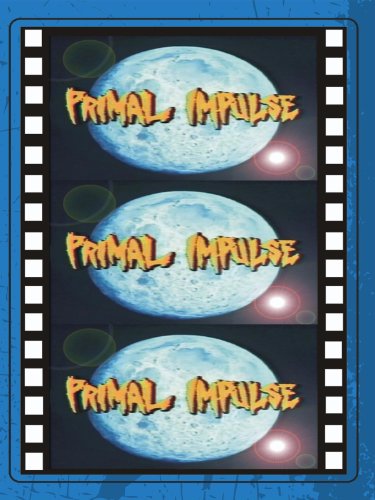IMDb runtime 1 hour and 36 minutes, rated 6.8 by 1184 masochists.
It opens ever so slowly with a moon landing, then cuts to one space-suited astronaut dragging another across the surface of the moon, only to abandon the dragged body and ascend in the LEM. Meanwhile, bug-eyed as always, Klaus Kinski is shouting into a microphone at what looks like mission control. Who would put Klaus in charge of anything! Keep that man away from the matches!


Then we turn to Alice, a translator in Rome, who goes off the rails. She misses days at work without herself noticing it. She finds things in her apartment of which she has no memory. She has lost an earring somewhere, somehow. All of these things she mentions to her friends who tell her to get some rest.
Because she found a postcard from Garma without a message on it in her apartment, she heads there, a remote and obscure location we are given to understand. When she arrives it is all but deserted in this resort for it is out of season. There she meets Beau, annoying Brat, and Lila. It seems she has been here before but everyone there knows her as Nicole. She also finds the missing earring. Thus the audience is sure she has been there before, even if she still is not.
Alice remains positive she has never set foot in the place, yet when Nicole’s clothes are presented to her they are a perfect fit. And so.
Brat tells her Nicole was on the run. Beau hangs around. Alice has recurrent images from that moonwalk and abandonment. She buys a second pair of large, and — no surprise — lethal scissors. The only reason she buys them is to have them handy later, it would seem.
It is a nice set up and then it is repeated for the next hour or so. Oh hum. It put the fraternity brothers in mind of ‘L’année denier à Marienbad’ (1961) though less glamorous. The repetition is eased by some very dreamy photography of Garma, about which more later, and an elegiac musical score.
Florinda Bolkan as Alice or Nicole carries the weight well enough but she has little to do but look perplexed. But she does not materialise from the screen like Delphine Seyrig.
It was released in one of its edited versions on DVD as ‘Primal Impulse’ in an effort to attract an audience by arousing expectations irrelevant to the film. Another triumph from a marketing department.

Completely misleading though the title is.
Spoiler.
After investing an hour and a half of watching and trying to fathom Alice’s predicament the end is a royal cop-out. After so much brain taxing the fraternity brothers were exhausted and then upset to arrive no where. Do not bother to look for meaning because there is none. The closing title card says Alice is a psycho to be confined to an asylum in Switzerland. End.
Guess where she left the scissors. No not in the Brat. But Beau is no more.
The visuals are striking, including the last scene on the pebble beach, but pointless.
Remote and obscure Garma was Kemer on the south coast of Turkey, hence the mosques and Arabic script on buildings. The sequences in Rome were filmed in the EUR district which is as unRoman as possible with glass, pre-fabricated cement and steel office blocks, and a grid of streets rather like La Défense in Paris. Everywhere the Romans went they laid out orderly cities with wide streets in rectilinear alignments. But not in the rabbit-warren that Roman itself remains.
The film has not been well served by time and tide. It failed to get many theatrical releases. Its production is unclear. One source says it was filmed in English and then dubbed into Italian. Then in an effort to get a theatrical release in the Anglo markets the Italian version was dubbed into English. Likewise, it was re-edited. None of these efforts bore fruit. It more or less disappeared for a generation.
Then some enthusiasts came upon it and have since gathered different versions and spliced them together, and one such example is what I watched on You Tube. It is indeed confused. The English dubbing is occasionally dropped and we have a scene in Italian, at other times there are Greek subtitles with English dubbing, and on still other occasions French dubbing with English subtitles. Variation also applies to the title cards, some in Italian and some in English. I compared two of the several versions available on You Tube and confirmed the observation that scenes have been edited out of some versions.
The critics linked to the IMDb site agree that these changes do not alter the substance, which is ethereal, insubstantial, and vapid.
‘Giallo’ is the Italian word for mystery stories like this, but knowing that did not help.
It came up in You Tube searches for Sy Fy because the references to the Moon, and at the outset it looked like a Moon mission was the key.
In the end it seems these early and recurrent images of the Moon mission came from a movie young Alice saw as a child, which frightened her, because one living astronaut was abandoned on the Moon, so that she ran from the cinema without seeing the end. Ergo, neither do we see the end. We never do find out what Kinski was up to but then he never knew either.
It was intriguing to watch with the eye and ear candy, and a change from elderly male actors slugging it out with CGIs. which is too much Sy Fy these days.
Month: March 2018
‘City of Gold’ (1992) by Len Deighton
Cairo, May 1942. The Desert Fox is a hundred miles away or less. Where? No one is sure. But close. Of that everyone is sure. Despite prodigious efforts the British have been unable to staunch Erwin Rommel’s relentless advance.

Egypt is a sovereign state with its own army, but it is neutral in this struggle. Its sovereign, the boy-king Farouk I, has invited the British to Egypt to protect the Suez Canal. Well, that is diplomatic fiction. The reality is that the British have occupied Egypt to protect the Canal, and thought it best to retain the façade of Egyptian sovereignty by leaving the king on the throne in the hope of stability in the rear.
Nationalists in Egypt are ready to welcome a Rommel victory as the means to end British domination and the corrupt local elite that thrives on that domination. Members of the Egyptian Army plot to that end, though there are many divisions among them.
British soldier Jim Ross arrives in Cairo in the custody of an MP who dies of food poisoning unexpectedly and quickly, and Ross switches places with the dead officer as a means of escape. But once in Cairo he is mistaken for that officer and soon finds himself growing into the role. That is a nice twist, and it is well realised.
Ross’s assignment is to find Rommel’s spy in Cairo who is feeding the Desert Fox very detailed information about the British forces, deployments, morale, weapons, Egyptian nationalism, shipping in the Canal, promotion of officers, developments in the Sudan and more. Ross discovers he has a penchant for reading files and making inferences.
Into the mix come many others. There is a resident white Russian prince, a widowed nurse, a Jewish gun runner for the Haganah, Ross’s superior and subordinate officers, and the comely Alice who finds him a man of alluring mystery. Throughout is the rogue Wallingford, a man of infinite charm, bottomless self-confidence, utter audacity, and who is amorally unscrupulous enough to go into politics. Even with a gun to his head, he continues to bargain.
Each character has a personality, but the sharpest is certainly Sergeant-Major Ponsonby who runs the office, and much else. In a complicated set of circumstance Ponsonby is forced to comply with the request of the arrogant women, the wife of a high ranking officer. Meekly he does so. Then, in a phrase Ross learns to respect, Ponsonby makes ‘a few inquiries.’ The woman’s request, though granted, seems thereafter never to progress through the works. At every stage it is misplaced, misfiled, mis-stamped, mis-signed, or mislaid. In the end Ponsonby is proved right, what she wanted was a bad mistake, and he explains the delays in action to Ross by saying ‘the SMs stick together.’
There are also vivid portraits of Egyptians caught between the worlds of the past, the present, and the future. Though the reaction of one Egyptian seems mistaken to this reader. His enemy was the king not the nationalists, but plots must have their devices.
The source of Rommel’s spy is adroitly handled, and is evidently historical fact, though it was all news to me (again). Though the plot device creaked here in the person of Percy, the ersatz South African.
For those that must have it, there is also one skirmish as the Germans advance, and Ross is in the wrong place at the wrong time.
Len Deighton’s name on the cover is always a guarantee of high quality plot and prose.
 Len Deighton
Len Deighton
————
After false starts with some krimis I wanted something to read that I could and would read, so I turned to an old reliable. While sure I had read this before, I remembered nothing of it, not even as I read it. Hmmm. In any case it lived up to my hopes, it was engaging, informative, amusing, and enlightening with a story, a plot, characters, and such that the krimis that I had aborted did not have.
